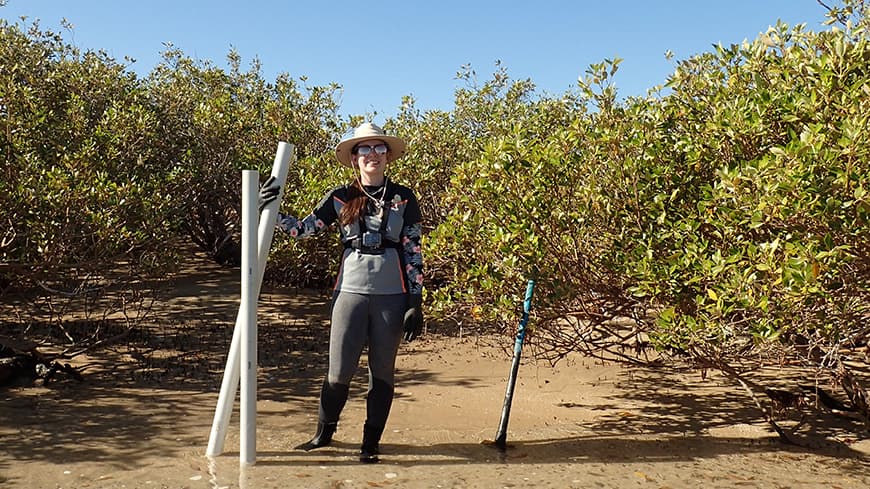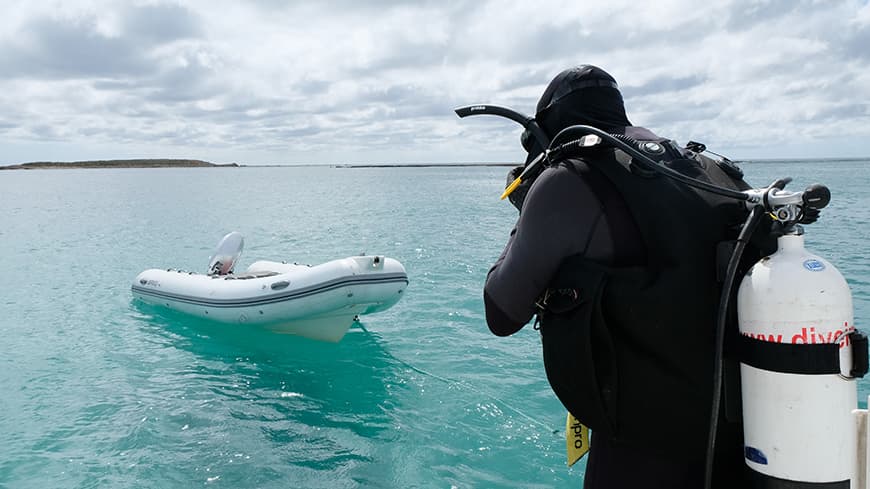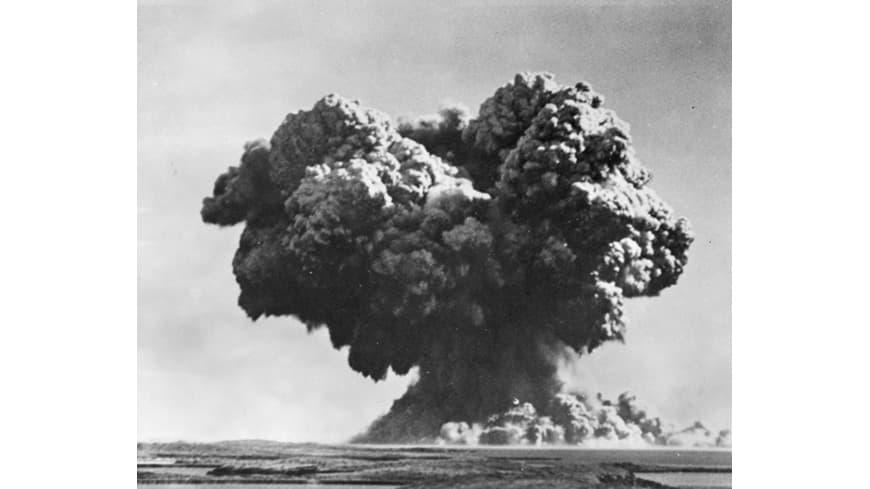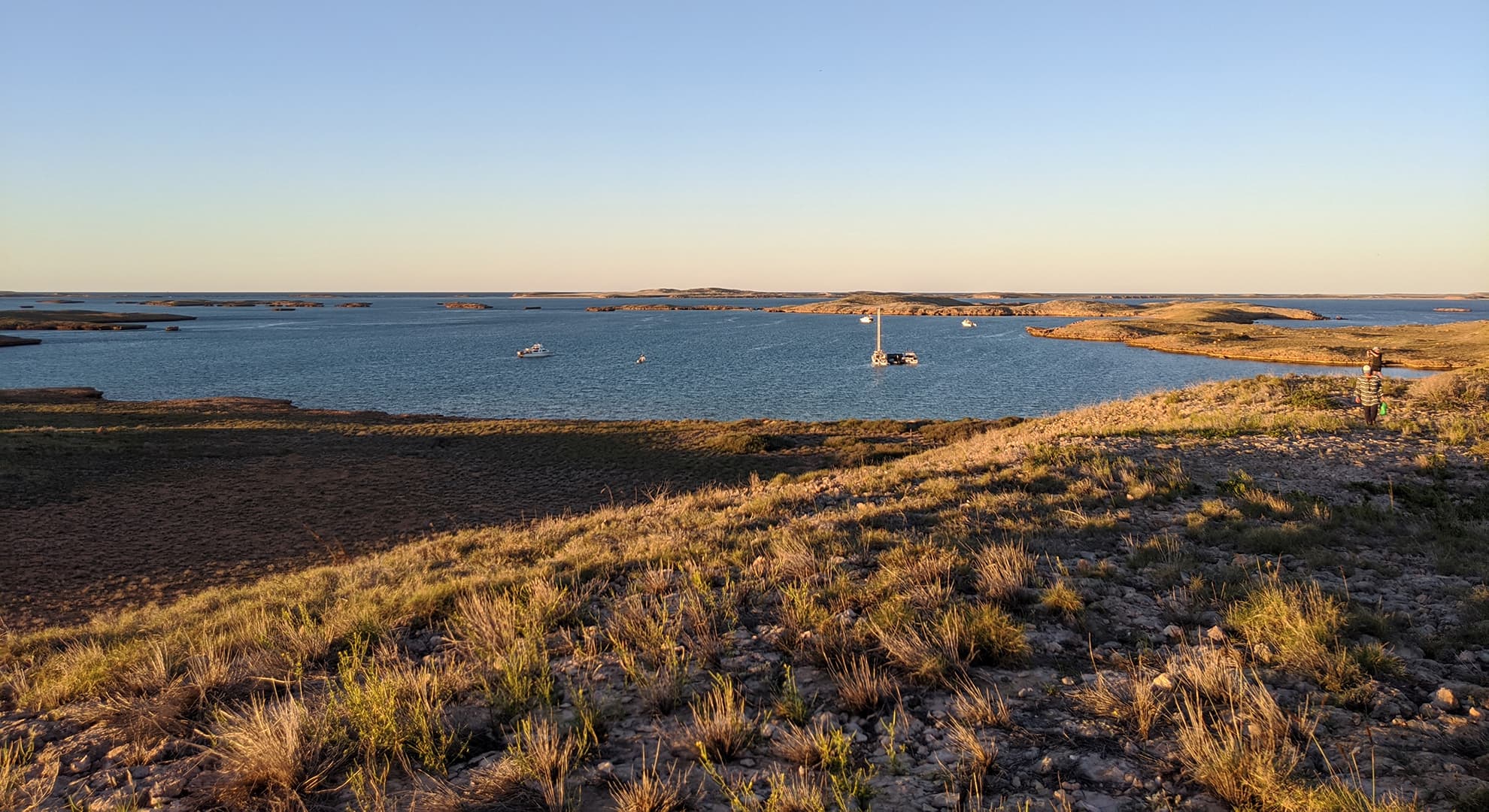
More than half a century since Britain conducted the first nuclear tests in Australia, at the Montebello Islands in WA’s north, marine scientists have discovered there remains a radiation risk to marine life and tourists.
The research project, which will continue into 2024, is led by Edith Cowan University (ECU) PhD student Mrs Madison Williams-Hoffman.
The extensive project has seen the collection and subsequent testing of more than 100 samples of marine sediment and marine life from the underwater ecosystem of the archipelago of islands.
“It is really important that we try and understand exactly what type of radionuclides and what levels of radiation remain in the marine ecosystem at the Montebello Islands.

“We’re focusing now on mapping out areas where higher levels of radionuclides are found in marine sediment all around the Marine Park. The next step will be to test the different organisms that we collected, from aquatic plants and sea cucumbers right through to coral trout,” Mrs Williams-Hoffman said.
The future of marine life
The Montebello Islands are ranked among the world's most biodiverse marine environments, with more than 150 varieties of coral, 450 species of fish, 630 types of molluscs and 170 species of sea stars and urchins.
“We have detected levels of radionuclides from the nuclear tests above what would be considered a background reading, or levels that you might get from the sand at your local beach.
“The final phase of the project will be to use these readings and some sophisticated models to see if there is any impact on the marine creatures that live, breathe and reproduce in the sediment,” she explained.
Tourist warning
The Montebello Islands Marine Park has over 250 low-lying limestone islands and islets, covering almost 60,000 hectares of ocean.
Each year the Islands are frequented by fishers, divers and snorkelers attracted to its coral reefs, vibrant tropical fish and rich maritime history.
The only way for tourists to access the Montebello Islands is by boat, with fishing charters operating out of Karratha and Onslow.
Due to the elevated radiation levels, visitors are currently encouraged to keep their trips to an hour a day.
Camping is permitted in some areas on Primrose, Bluebell, Hermite, Crocus & Renewal Islands all-year round and between April and September on Northwest Island.

Operation Hurricane
The first of three nuclear tests, known as Operation Hurricane, took place on 3 October 1952, in Main Bay, Trimouille Island in the Montebello Islands, located 120-kilometres west of Dampier.
The remoteness of the islands, as well as other personal health and safety concerns has prompted Parks and Wildlife Service staff to again highlight the warnings to boating visitors.
 70 years on marine scientists have discovered there remains a radiation risk to marine life and tourists. Image credit: Madison Hoffman
70 years on marine scientists have discovered there remains a radiation risk to marine life and tourists. Image credit: Madison Hoffman



